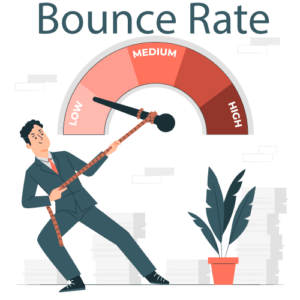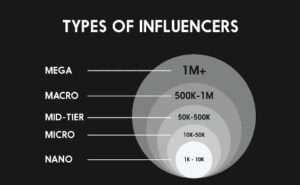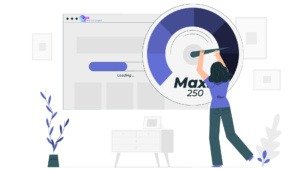
In today’s digital landscape, search engine optimization (SEO) is vital for businesses aiming to establish a strong online presence and attract valuable organic traffic. However, a common question arises: Can you handle SEO on your own, and is it possible to achieve effective results without spending a fortune? Let’s delve into this topic and explore the possibilities of DIY SEO and achieving it for free.
DIY SEO: Taking Matters into Your Own Hands
With the wealth of online resources available, it’s certainly possible to take a DIY approach to SEO. Numerous guides, tutorials, and tools are accessible to help you understand the basics of keyword optimization, content creation, and on-page SEO techniques. DIY SEO can be particularly advantageous for small businesses or individuals with limited budgets, as it eliminates the need for hiring expensive professionals.
Key Areas for DIY SEO
Keyword Research: Utilizing tools like Google Keyword Planner, Ubersuggest, or SEMrush, you can identify relevant keywords for your niche. This involves finding terms that potential customers are searching for and integrating these keywords into your content, meta tags, and URLs.
On-Page SEO: This includes optimizing your website’s content and structure. Key aspects include:
- Title Tags and Meta Descriptions: Crafting compelling and keyword-rich titles and descriptions can improve click-through rates.
- Header Tags: Organizing content with header tags (H1, H2, H3, etc.) improves readability and SEO.
- Content Optimization: Ensuring your content is valuable, relevant, and includes keywords naturally can enhance search rankings.
- Internal Linking: Connecting related content within your site helps both users and search engines navigate your website.
Technical SEO: Basic technical optimizations such as improving page speed, ensuring mobile-friendliness, and optimizing site structure can be managed with tools like Google Search Console and PageSpeed Insights.
Content Creation: Regularly publishing high-quality, engaging content that addresses your audience’s needs can drive traffic and improve your SEO performance.
Backlink Building: Earning backlinks from reputable sites can boost your domain authority. This can be achieved through guest blogging, outreach, and creating shareable content.
Challenges of DIY SEO
However, while DIY SEO offers potential benefits, it’s essential to acknowledge the challenges it poses. SEO is a complex and constantly evolving field. Keeping up with algorithm updates, technical optimizations, and content strategies can be time-consuming and demanding. Achieving substantial results requires a deep understanding of search engine practices and consistent effort.
Algorithm Changes: Search engines frequently update their algorithms, which can affect your rankings. Staying current with these changes and adjusting your strategy accordingly can be challenging.
Time Investment: SEO requires ongoing effort. From content creation to link building and technical fixes, the time commitment can be significant.
Complexities of Technical SEO: Some technical aspects of SEO, such as website architecture and advanced coding issues, may be difficult for beginners to handle without technical expertise.
Competitiveness: In highly competitive industries, ranking well in search engines often requires more advanced strategies and potentially significant effort, which may be challenging to manage on your own.
Achieving SEO for Free
On the other hand, the idea of achieving SEO for free often revolves around leveraging organic tactics without spending on paid advertising. This involves crafting high-quality, user-focused content, building relevant backlinks, and ensuring a responsive and mobile-friendly website. While these strategies don’t require direct financial investment, they demand significant time and effort.
Content Marketing: Creating valuable and shareable content can drive organic traffic and improve your search engine rankings. Regular blog posts, infographics, and videos can attract and engage your target audience.
Social Media: Promoting your content through social media channels can increase visibility and drive traffic to your site. Engaging with your audience on platforms like Facebook, Twitter, and LinkedIn can also build brand awareness.
Local SEO: Optimizing your site for local search can help attract nearby customers. This includes creating and optimizing a Google My Business listing and encouraging customer reviews.
Community Engagement: Participating in relevant forums, online communities, and industry groups can help you build relationships and earn backlinks.
Optimization Tools: Many free tools, such as Google Analytics and Google Search Console, can provide valuable insights and help you monitor your site’s performance.
Balancing DIY and Professional Expertise
While it’s possible to handle certain aspects of SEO on your own or without direct expenses, the optimal approach often involves a balance between DIY efforts and seeking professional guidance. SEO specialists possess in-depth knowledge and experience to address intricate challenges and implement strategies that yield better results.
When to Seek Professional Help:
- Complex Issues: If you encounter technical issues or complex SEO challenges, a professional can provide solutions that may be beyond your expertise.
- Time Constraints: If you have limited time to dedicate to SEO, hiring a professional can ensure that your efforts are effective and efficient.
- Competitive Markets: In highly competitive industries, professional guidance can offer advanced strategies and insights that can significantly impact your rankings.
Finding the Right Expertise:
- Consultations: Many SEO professionals offer consultations or audits that can provide valuable insights without a long-term commitment.
- Freelancers: Hiring a freelancer or an agency on a project basis can be a cost-effective way to leverage professional expertise without ongoing costs.
Conclusion
In summary, while it is possible to handle SEO on your own and achieve some level of success without spending a fortune, it requires a significant investment of time and effort. DIY SEO can be effective for basic optimizations and small-scale efforts, but for more advanced strategies and substantial results, professional guidance can be highly beneficial. Balancing your DIY efforts with expert advice can help you optimize your SEO strategy and achieve the best results for your website.

















































